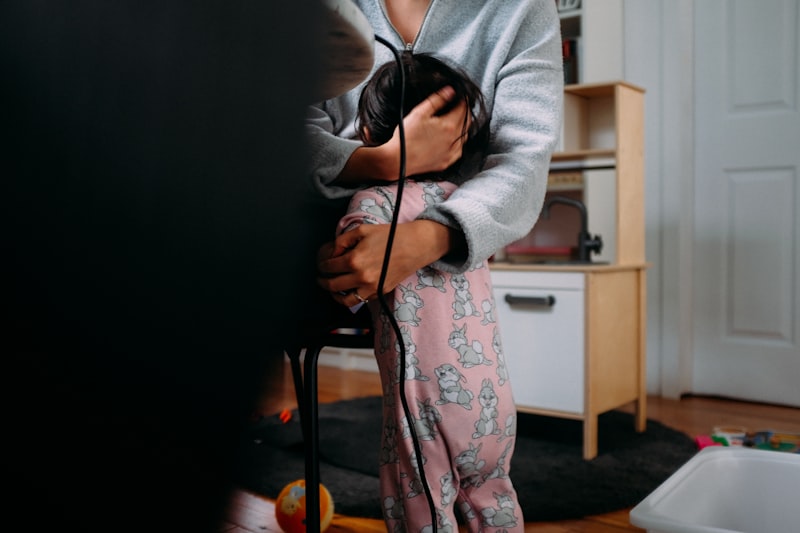First up, let’s talk about mindful parenting. Imagine parenting like you’re a Zen master—calm, present, and aware. That’s what mindful parenting is all about. It’s about being fully engaged with your child, listening with empathy, and responding thoughtfully rather than reacting impulsively. It’s like hitting the pause button on life’s chaos and tuning into your child’s world with an open heart.
Then there’s the rise of positive discipline. Forget about harsh punishments; today’s parents are leaning into gentle, supportive approaches. Positive discipline focuses on guiding children with kindness, teaching them to understand the consequences of their actions rather than just imposing rules. It’s a bit like being a coach who’s there to cheer your child on and help them grow, rather than just a referee blowing the whistle.
Another trend is the emphasis on emotional intelligence. Parents are increasingly recognizing the importance of helping their kids understand and manage their emotions. This means having open conversations about feelings, validating their experiences, and teaching them how to handle emotions constructively. It’s akin to equipping your child with a toolkit for their emotional journey.
We also see a growing interest in technology integration, where parents are blending traditional parenting with modern tech tools. This could mean using apps to track developmental milestones or incorporating educational games into playtime. It’s like having a GPS for your parenting journey—guiding you with insights and tools to enhance your child’s learning and development.
From Helicopter to Drone: How Parenting Styles Are Evolving in the Digital Age
Fast forward to the digital age, and parenting is evolving into something more like drone parenting. Imagine a drone: it hovers with precision but from a distance, offering a panoramic view of the landscape. This modern style reflects a shift towards giving children more space to navigate their own paths while still being there to offer guidance when needed.
With the rise of digital tools, parents can now keep an eye on their kids’ progress and wellbeing without being constantly on top of them. Apps and online platforms allow for monitoring academic performance, social interactions, and even health metrics without the need for direct supervision. This method respects children’s growing independence, fostering a sense of responsibility and self-reliance.
Yet, this doesn’t mean parents are disengaging. Much like a drone can swiftly move in for a closer look if needed, parents today can jump in to offer support or advice when necessary. They’re learning to balance involvement with respect for their children’s autonomy, adapting to the digital landscape’s demands and opportunities.
In essence, the shift from helicopter to drone parenting is about finding the sweet spot between protection and freedom, blending technology with trust to nurture more resilient and independent kids.
The Rise of Gentle Parenting: Why More Parents Are Choosing Compassion Over Discipline

Have you noticed a shift in parenting styles lately? More and more parents are turning to gentle parenting, swapping out traditional discipline for a more compassionate approach. Why the change? Well, imagine this: instead of a strict ruler and stern looks, parents are now opting for understanding, patience, and a soft touch. Sounds refreshing, doesn’t it?
Gentle parenting isn’t just a trend; it’s a response to a growing realization that harsh discipline can have long-term effects on kids. Think of it like nurturing a plant. You wouldn’t yank at its leaves or bark at it to grow, right? You’d water it, provide sunlight, and give it the care it needs. That’s exactly what gentle parenting is all about—treating children with empathy and respect.
This approach focuses on building a strong, trusting relationship between parents and children. Instead of a time-out or a scolding, gentle parenting encourages parents to understand the root of a child’s behavior. Maybe that tantrum isn’t just about not getting a toy; it might be about feeling unheard or frustrated. By addressing these underlying issues with kindness, parents foster a more positive and supportive environment.
Moreover, gentle parenting aligns well with modern research on child development. Studies suggest that children who grow up in nurturing environments tend to develop better emotional regulation and social skills. It’s like planting seeds of resilience and kindness that will bloom into well-adjusted, empathetic adults.
So, why are more parents making the switch? Because they’re discovering that compassion isn’t just a nice-to-have—it’s essential for raising happy, healthy kids. It’s about creating a home where love and understanding lead the way, making every day a bit warmer and more connected.
The Modern Dad: How Parenting Roles Are Shifting in 2024
Let’s face it—parenting in 2024 looks nothing like it did a couple of decades ago. Gone are the days when dads were seen merely as weekend warriors or occasional diaper-changers. Today’s fathers are diving headfirst into the day-to-day responsibilities of raising kids, and the shift is both refreshing and revolutionary.

Picture this: it’s no longer unusual for dads to be the ones scheduling doctor’s appointments, packing school lunches, or even leading bedtime stories. The modern dad is redefining what it means to be an active parent. Imagine a dad who’s just as likely to be found at a PTA meeting as he is at a weekend sports game. This newfound involvement isn’t just a trend; it’s a sign of how family dynamics are evolving.
Why the shift? Well, part of it is due to changing work patterns. Flexible hours and remote work are giving dads more opportunities to engage with their families. And let’s not forget the impact of shifting societal norms—modern fathers are breaking free from outdated stereotypes that pigeonhole them into specific roles. The narrative now encourages both parents to share responsibilities equally.
Think about it: in the past, the “dad’s role” was often defined by traditional expectations—mainly financial provision and occasional fun. But now, the definition of fatherhood is broader and more inclusive. Today’s dads are involved in every aspect of their children’s lives, from helping with homework to participating in school events and even leading family activities. They’re not just helping out—they’re deeply invested.
So, as we move through 2024, one thing is clear: the modern dad isn’t just changing the game; he’s rewriting the rules entirely. It’s a new era of parenting where both moms and dads equally contribute to the beautiful chaos of raising a family.
Helicopter vs. Free-Range: The New Debate in Parenting Approaches
Helicopter parenting is like having a personal air traffic controller for your child’s life. You’re constantly adjusting the altitude to ensure they don’t encounter turbulence. While this approach can offer a sense of security and well-guided support, it might also lead to over-dependence, where kids struggle to make decisions on their own because they’ve never had the chance to fly solo.
Conversely, free-range parenting is akin to letting your child spread their wings in a vast field, trusting them to find their own way. It’s about encouraging independence and resilience by allowing kids to explore, make mistakes, and learn from them. This approach can foster self-reliance and confidence, but it also comes with the challenge of balancing freedom with safety.
So, which is better? It’s not a one-size-fits-all scenario. Both methods offer unique benefits and drawbacks. Some parents might blend the two styles, hovering just enough to provide guidance while allowing their children the freedom to experience life firsthand. Others might lean more towards one approach depending on their child’s personality and the circumstances they face.
In essence, the debate between helicopter and free-range parenting is about finding that sweet spot where support and independence coexist, shaping well-rounded, capable individuals who are prepared to navigate the skies of life.
Technology’s Influence: How Digital Tools Are Shaping Parenting Styles Today
The rise of social media has created a new parenting arena where families share their experiences, seek advice, and find community support. With the click of a button, parents can connect with others facing similar challenges, share tips, or just find a bit of reassurance. Isn’t it fascinating how a simple post or comment can provide comfort and guidance?
Moreover, educational apps and online resources have transformed how children learn. Gone are the days when learning was confined to textbooks and classrooms. Now, children engage with interactive tools that make learning as engaging as a video game. These resources can turn any living room into a classroom, making education more accessible and tailored to each child’s needs.
On the flip side, digital tools also bring their own set of challenges. The constant connectivity can sometimes lead to information overload or distractions that impact both parents and children. Balancing screen time with offline activities is a new frontier in parenting, requiring a thoughtful approach to ensure technology enhances rather than detracts from family life.
In essence, technology has redefined parenting, making it more connected, resourceful, and dynamic. Whether it’s through educational apps, social media, or digital trackers, technology is undeniably shaping how we raise the next generation.
Mindful Parenting: The Growing Trend of Emotional Awareness in Child Rearing
Picture this: instead of reacting to your child’s outbursts with frustration, you take a moment to breathe and understand where they’re coming from. This pause isn’t just a breather for you; it’s a bridge to better communication and connection. Mindful parenting encourages you to tune into your child’s feelings and needs, much like a DJ reading the crowd’s vibe at a party. When you’re aware of their emotional state, you’re better equipped to respond with empathy and patience.
Why is this trend gaining traction? Well, it’s simple. Emotional awareness helps both parents and children develop stronger relationships and better emotional resilience. When you practice mindfulness, you model how to handle stress and emotions calmly and thoughtfully, which your child learns to emulate. Think of it as planting seeds of emotional intelligence that will grow and flourish over time.
But it’s not just about being calm; it’s also about being genuine. When you engage with your child mindfully, you’re showing them that their feelings matter. It’s like turning on a light in a dim room—suddenly, everything is clearer, and you’re able to see each other more fully. This connection fosters trust and security, essential ingredients for a healthy parent-child relationship.
Mindful parenting isn’t about perfection; it’s about progress. It’s about gradually building a deeper, more empathetic connection with your child, one mindful moment at a time.
Frequently Asked Questions
What Are the Benefits of Authoritative vs. Permissive Parenting?
Authoritative parenting, characterized by high responsiveness and high demand, fosters a balanced approach that promotes independence and self-discipline in children. In contrast, permissive parenting, marked by high responsiveness but low demand, tends to emphasize freedom and flexibility, which may lead to less structure and self-regulation in children. Authoritative parenting generally leads to better outcomes in terms of social competence and academic performance, while permissive parenting can result in more immediate satisfaction but may lack long-term behavioral guidance.
How Can Technology Impact Parenting Techniques?
Technology can enhance parenting by providing tools for monitoring and managing children’s activities, offering educational resources, and facilitating communication. However, it also presents challenges such as balancing screen time and ensuring privacy. Effective use of technology can support better parenting practices and child development.
What Are the Latest Trends in Parenting Styles?
Recent parenting trends emphasize flexibility, promoting emotional intelligence, and balancing technology use. Modern approaches focus on adapting to children’s individual needs, fostering open communication, and encouraging independence while maintaining supportive guidance.
What is Positive Parenting and How Does It Work?
Positive Parenting focuses on building strong, supportive relationships between parents and children. It emphasizes encouragement, empathy, and effective communication to guide children’s behavior and development. This approach aims to foster a child’s self-esteem and emotional resilience while maintaining clear boundaries and expectations.
How Do Modern Parenting Approaches Differ from Traditional Ones?
Modern parenting often emphasizes child-centered approaches, focusing on emotional support and flexibility, while traditional methods typically stress authority and adherence to established norms. Modern strategies encourage open communication and individual expression, contrasting with the more structured and hierarchical nature of traditional practices.


